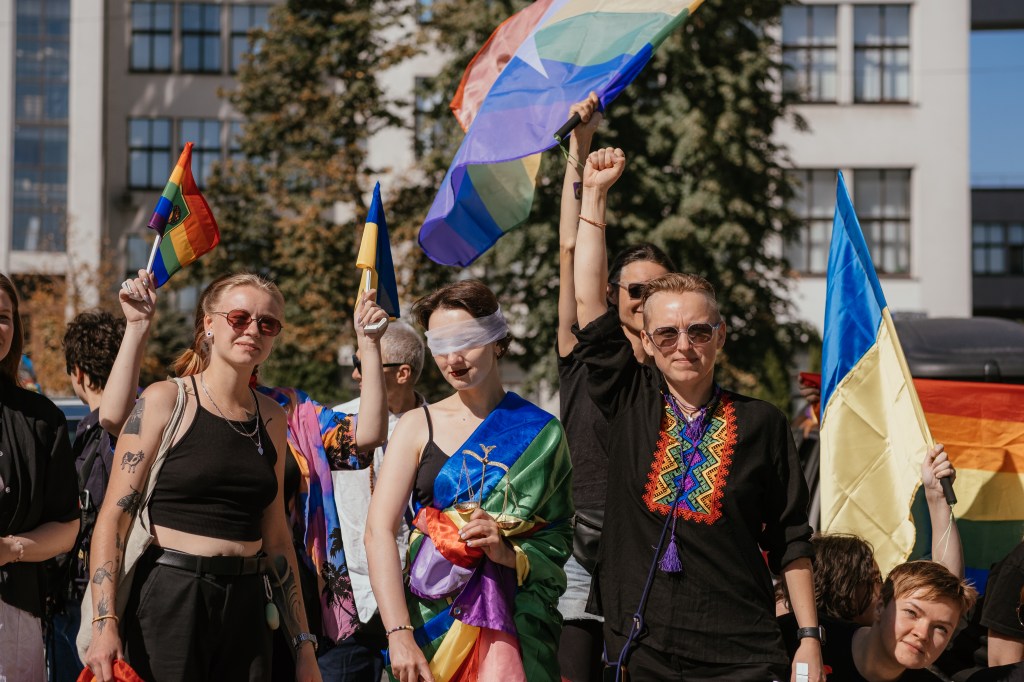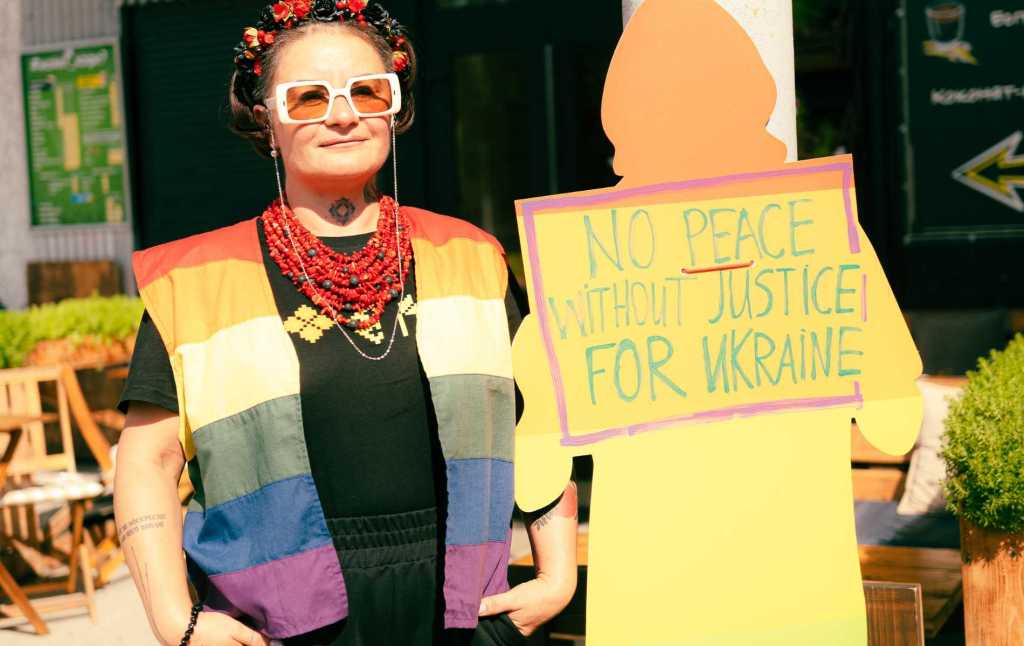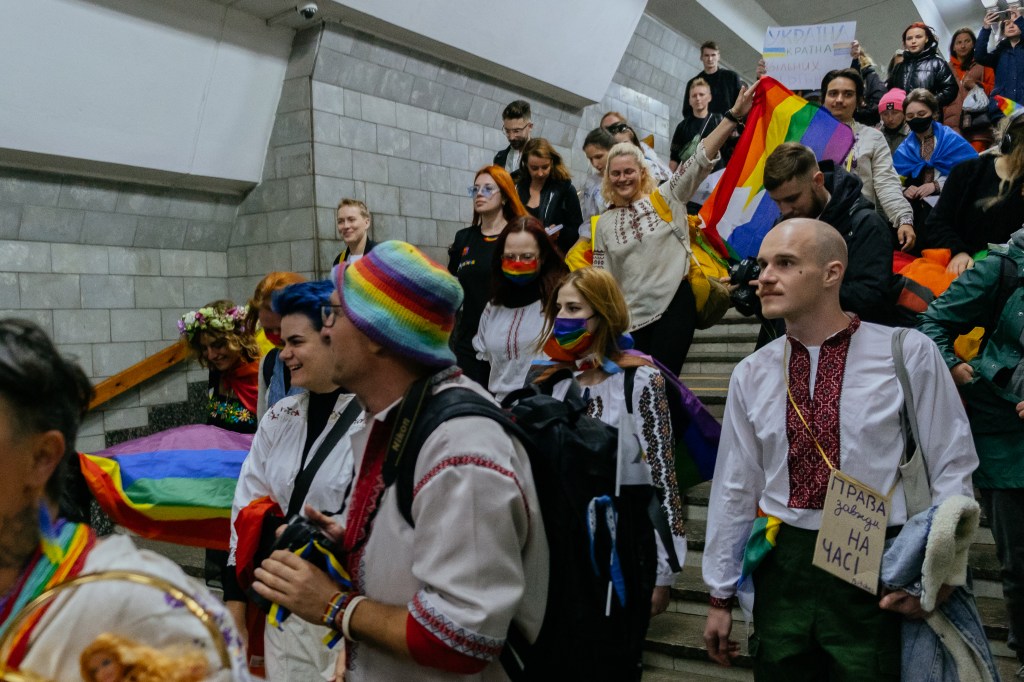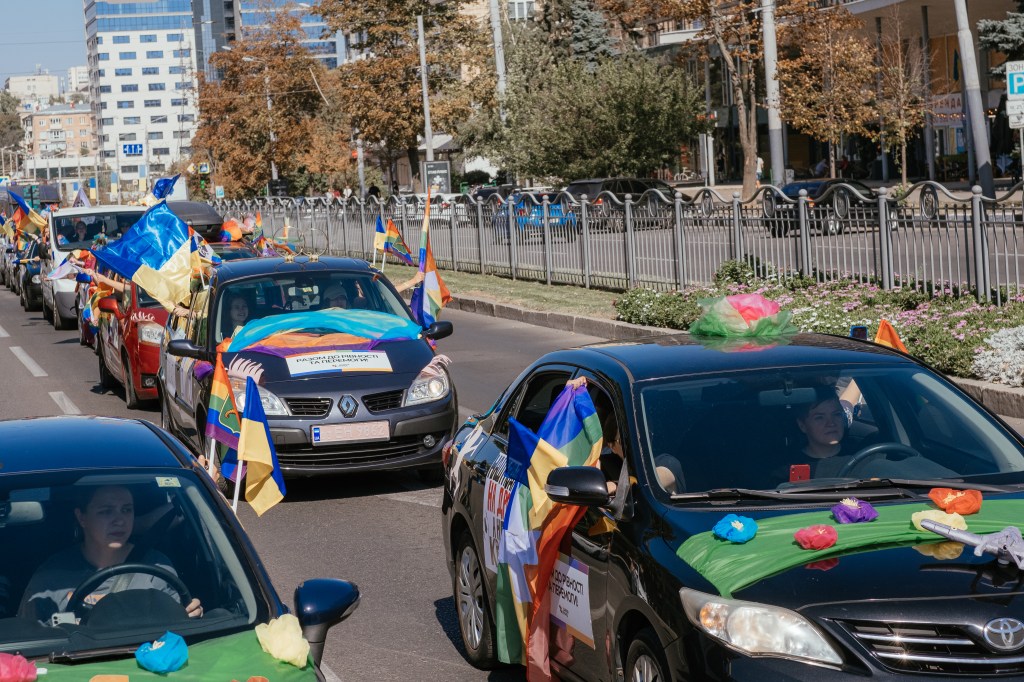Despite war, Pride persists in Kharkiv: ‘We stay here and continue our work’
In the north-east of Ukraine, a mere 18 miles from the Russian border, sits the city of Kharkiv, home to Kharkiv Pride.
Since Vladimir Putin’s full-scale invasion of Ukraine in February 2022, the country’s second-largest city has faced relentless strikes by Russian forces with more than 8,000 of its buildings – including schools and homes – destroyed, thousands of people killed and injured whilst countless more have fled westward to Kyiv or abroad for safety.
But despite the on-going war, the destruction, the uncertainty, Pride persists.

When the conflict began, Kharkiv was quickly identified as one of Russia’s main targets given its proximity to the border, history and infrastructure.
A traditionally Russian-speaking city, Kharkiv was a major centre during the Russian Empire and once served as the capital of Soviet Ukraine between 1919 and 1934.
Nowadays, the city is an industrial, scientific and cultural hub home to several top universities and research institutes and has various industrial enterprisesemploying thousands across the chemical, power production, fuel, and food sectors.
The city and the wider region of Kharkiv Oblast, which has become increasingly known for its agricultural production and also holds Ukraine’s largest natural gas reserves, unsurprisingly contribute significantly to Ukraine’s economy.
Capturing the Kharkiv – home to 1.4 million before the start of conflict – would be both a strategic and symbolic victory for Putin.
When Russian forces crossed the border in February they captured several towns and villages across Kharkiv Oblast as they made their way towards Kharkiv – but were unable to take the city.
You may like to watch
In those early days of the war, Kharkiv became a powerful symbol of Ukrainian resistance and was one of several cities declared as a Hero City of Ukraine by president Volodymyr Zelenskyy.
Despite Kharkiv remaining firmly in Ukrainian control the city has been continuously bombarded with shelling, with residents attempting to live their day-to-day lives amongst air sirens, blackouts and ruins.
For LGBTQ+ people living in Kharkiv, there is a further dimension to the fear residents feel at the prospect of the city falling to Putin: Russia’s deeply queerphobic national policies.

“It is my biggest fear,” Anna Sharyhina, the co-organiser of KharkivPride and president of the Sphere Women`s Association, told PinkNews when asked about a list Russia allegedly has of LGBTQ+ activists, “because I know that it means sexual violence. It means physical violence. They just beat people for hours.
“We have, for instance, a colleague from the LGBT+ Military who was in captivity for 20 months. I have no idea what I should do in that case, it makes me so scared. I feel frozen when I think about that.”
Over the last decade, the Russian government has implemented several laws which – short of fully criminalising homosexuality – have near totally eroded LGBTQ+ rights in the country, including completely outlawing gender-affirming care for trans people, stopping adoption of Russian children to countries with trans friendly polices and labelling LGBTQ+ activism “extremist”.
In 2023, Russia’s Supreme Court said that the “international public LGBT movement” – which is not a specific organisation but rather a descriptor for LGBTQ+ activism in general – had been using “signs and manifestations” of an “extremist nature” which included what it describes as “incitement of social and religious discord”.
The crackdown on members of the LGBTQ+ community has seen a man fined for just joking he started the LGBTQ+ movement, queer bar staff and venue ownersjailed, more than 50 club-goers detained at a club night, language-learning app Duolingo forced to remove its inclusive content, children’s cartoon My Little Ponylabelled 18+, a gay student expelled from university for posting make-up videosand the Elon John AIDS Foundation banned from Russia for undermining “traditional spiritual and moral values”.
Reports have emerged of those accused of being involved with the LGBTQ+ community being held in abhorrent conditions and dying whilst in custody.

Sharyhina admitted she tries not to think about the threats she and others face from Russia, instead focusing her work for her community – LGBTQ+ and Ukrainian alike.
“We continue our fight and I continue that fight, even if I burn out,” she said, adding that it is not just that she does not want to be in the closet, she “can’t, anymore”.
“The only way I have is to fight. I am really tired but Ukraine, it is my home, and I really need our country to [be its own], not Russian because we are not Russian.”
“Our partners advised us to go from Kharkiv to other cities,” she said, “but we stay here and we continue our work.”
“It was important to continue our fight”
When the war came, KharkivPride, which began in 2019, was unable to go ahead with its usual activities.
Months after the invasion though, the Pride organisation instead held a MetroPride where LGBTQ+ people powerfully and resiliently marched through the city’s subway – protected from both the Russian airstrikes and the far-right groups who would normally seek to violently counter-protest.
That Pride, amidst the harrowing, early days of the conflict, was about still being in the public eye, with Sharyhina explaining “it was really important to continue our fight, continue to be visible in that situation”.
She told PinkNews initially the LGBTQ+ community chose to keep silent about its fight for equal rights when the invasion happened and focused instead on securing Ukrainian independence. But, after they were accused by certain quarters of not fighting for Ukraine, Sharyhina concluded LGBTQ+ people“can’t be silent again”.
This year’s KharkivPride celebrations are taking place between 30 August and 6 September, under the slogan: “Together for equality and victory”.

On 30 and 31 August the group hosted a PrideFest, followed by a commemoration of fallen LGBTQ+ military personnel on 5 September and will conclude with an AutoPride on 6 September – which will see a convoy of cars decked out in rainbows travel through the city.
More than half a decade on from the first KharkivPride, when the group “collected people from zero” because the queer community was not publicly active, organisers continue to mobilise the community.
“Our community centre is a safe space for LGBT people. When people come to the community centre they feel freedom and like they can be themselves and proud of it. They don’t feel scared about coming out.
“When you have a place and know people like you – homosexual, queer or trans people – you can feel yourself,” Sharyhina said, adding LGBTQ+ residents feel “inspired” by that space.
“After that, they come to Pride because they are ready to say something about their rights.”